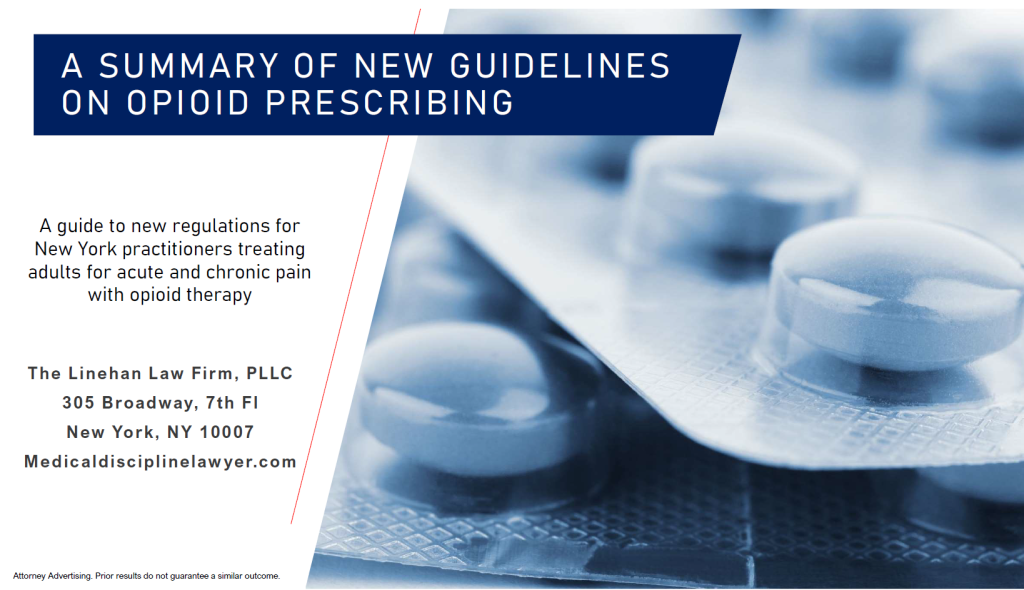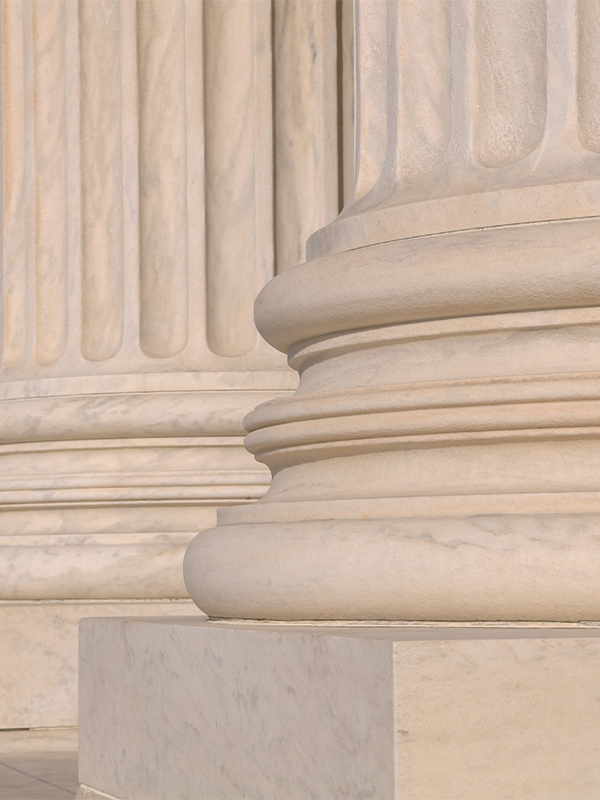We’re on the Case
Professional Discipline
State and Federal authorities routinely conduct investigations into the conduct of licensed professionals, such as physicians, attorneys, social workers, nurses, and others who provide sophisticated services to the public. These are government agencies – such as the Office of Professional Medical Conduct, the Attorney Grievance Committees, the Education Department’s Board of Regents, or the Office of Professional Development – who issue licenses to qualified applicants and/or monitor the conduct of those in practice. Complaints from customers, clients, or peers may find their way to these agencies’ investigators. Even a single report can kickstart a full-blown inquiry into your compliance with rules of conduct and ethics in your profession.

Prescribing Opioids? Click here for our summary of the most recent CDC GuidelineThe Linehan Law Firm assists professionals in answering before these licensing and professional boards in the wake of a variety of accusations. Most professionals stand proudly by their practices, and eagerly wish to defend themselves against unfounded allegations. But early legal representation is paramount to create a shield between your practice and government authorities. Demands for medical files, client communications, patient information or billing records can all be part of a greater investigation unknown to even the most diligent of professionals. Any response provided in answer to these demands can be used against you in future proceedings. Discipline defense counsel can seek clarity on the issues involved, negotiate a fair settlement or compromise with the authorities, employers, or any third parties involved, and connect clients to professional assistance, if necessary. Complaints from clients or patients – particularly in the age of online social media – can easily turn into a public relations nightmare for a busy professional.
For physicians, nurse practitioners, and physician assistants, OPMC investigates claims of negligence, incompetence, criminal allegations, and other misconduct. These investigations may include interviews of patients, staff, and colleagues, audits of medical files and billings to insurance carriers, and possibly an administrative hearing visible to the public. If enough evidence of misconduct is brought before the Board and the OPMC director, and if the case is not resolved by a physician’s attorney advocating on their behalf, a committee will vote to refer cases for formal charges. The physician under scrutiny will be advised and the charges will be made public within 5 days.
Even one of the following findings by an OPMC investigation could lead to a Board vote:
- A single incident of negligence or incompetence.
- A pattern of inappropriate prescribing or medical practice.
- Impairment by drugs, alcohol, physical or mental disability.
- The Board’s review of a medical society’s recommendation.
- The Board’s review of facts underlying a medical malpractice lawsuit verdict.
- A criminal conviction of any kind.
If an investigation proceeds to a hearing, the Commissioner of Health will order a physician’s license to be suspended pending the outcome of the hearing. Even if a physician appeals a Board order, the suspension will not be postponed.
If the investigation’s findings are adopted by the State Board for Professional Conduct, it can penalize practitioners with fines of up to $10,000, probationary periods, limitations on your practice areas, community service, and suspension or revocation of your license.
Many practitioners avoid a formal disciplinary hearing by entering into “consent agreements” with the Board, which usually include compromises on penalties and conditions on the physician’s practice. These resolutions may not always be ideal, but they save one’s time, legal fees, and may be the best way to keep one’s license.
The vast majority of OPMC actions end with serious consequences for physicians.
If a practitioner’s license is suspended, it can later be restored upon a showing that the licensee has been rehabilitated, completed a prescribed course of treatment, or fulfilled other requirements.
For nurses, pharmacists, social workers, and dentists, the New York State Department of Education’s Office of Professional Discipline conducts similar but less formal investigations often based on phone calls or interviews made to the professionals under investigation, who are required to submit records for review within 30 days of notice. OPD makes recommendations to the Board of Regents, which can impose penalties like public reprimands, up to $10,000 fines, suspension and revocation of your license.
Disciplinary actions can have long-lasting repercussions on your reputation. Let’s talk about keeping your practice secure.



